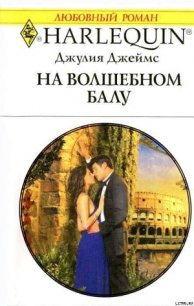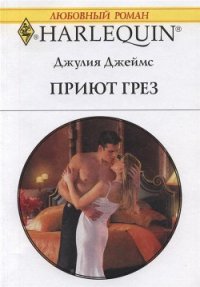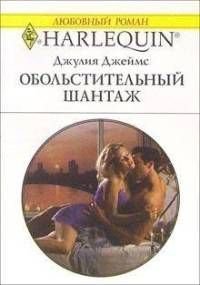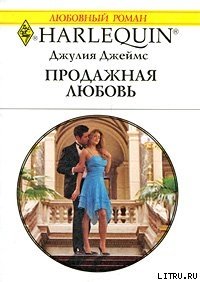Julia Ward Howe - Richards Laura E. (бесплатная регистрация книга TXT) 📗
New interests were constantly arising. In these days Edwin Booth made his first appearance in Boston. Our mother and father went to the Boston Theatre one rainy evening, "expecting to see nothing more than an ordinary performance. The play was 'Richelieu,' and we had seen but little of Mr. Booth's part in it before we turned to each other and said, 'This is the real thing!'"
Then they saw him in "Hamlet" and realized even more fully that a star had risen. He seemed
... beautiful as dreams of maidenhood,
That doubt defy,
Young Hamlet, with his forehead grief-subdued,
And visioning eye.[50]
Mr. Booth's manager asked her to write a play for the young tragedian. She gladly consented; Booth himself came to see her; she found him "modest, intelligent, and above all genuine,—the man as worthy of admiration as the artist."
In all the range of classic fiction, to which her mind naturally turned, no character seemed to fit him so well as that of Hippolytus; his austere beauty, his reserve and shyness, all seemed to her the personification of the hunter-prince, beloved of Artemis, and she chose this theme for her play.
The writing of "Hippolytus" was accomplished under difficulties. She says of it:—
"I had at this time and for many years afterward a superstition about a north light. My eyes had given me some trouble, and I felt obliged to follow my literary work under circumstances most favorable for their use. The exposure of our little farmhouse [at Lawton's Valley] was south and west, and its only north light was derived from a window at the top of the attic stairs. Here was a platform just large enough to give room for a table two feet square. The stairs were shut off from the rest of the house by a stout door. And here, through the summer heats, and in spite of many wasps, I wrote my five-act drama, dreaming of the fine emphasis which Mr. Booth would give to its best passages and of the beautiful appearance he would make in classic costume. He, meanwhile, was growing into great fame and favor with the public, and was called hither and thither by numerous engagements. The period of his courtship and marriage[51] intervened, and a number of years elapsed between the completion of the play and his first reading of it."
At last the time seemed ripe for the production of the play. E. L. Davenport, the actor manager of the Howard Athen?um, agreed to produce it: Charlotte Cushman was to play Ph?dra to Booth's Hippolytus. Rehearsals began, the author's dream seemed close upon fulfilment. Then came a slip never fully explained: the manager suddenly discovered that the subject of the play was a painful one; other reasons were given, but none that appeared sufficient to author or actors.
"My dear," said Miss Cushman, "if Edwin Booth and I had done nothing more than stand upon the stage and say 'good evening' to each other, the house would have been filled."
Briefly, the play was withdrawn. Our mother says: "This was, I think, the greatest 'let down' that I ever experienced. It affected me seriously for some days, after which I determined to attempt nothing more for the stage."
She never forgot the play nor her bitter disappointment.
Many memories cluster about the gracious figure of Edwin Booth. He came often—for so shy and retiring a man—to the Chestnut Street house. We children all worshipped at his shrine; the elder girls worked his initials on the under side of the chair in which he once sat, which was thereafter like no other chair; the younger ones gazed in round-eyed admiration, but the great man had eyes for one only of us all. We gave a party for him, and Beacon Street came in force to meet the brilliant young actor. Alas! the brilliant young actor, after the briefest and shyest of greetings to the company, retired into a corner with eight-year-old Maud, where he sat on the floor making dolls and rabbits out of his pocket handkerchief!
This recalls an oft-quoted anecdote of the time. Our mother wished Charles Sumner to see and know Booth. One evening when the Senator was at the house, she told him of her wish. The next day she writes in her Journal: "Sumner to tea. Made a rude speech on being asked to meet Booth. Said: 'I don't know that I should care to meet him. I have outlived my interest in individuals.' Fortunately, God Almighty had not, by last accounts, got so far."
Sumner was told of this in her presence. "What a strange sort of book," he exclaimed, "your diary must be! You ought to strike that out immediately."
She admired Charles Sumner heartily, but they disagreed on many points. He disapproved of women's speaking in public (as did the Doctor), and—with wholly kind intentions—did what he could to prevent her giving the above-mentioned readings in Washington. She notes this in her Journal.
"I wrote him a very warm letter, but with no injurious phrase, as I felt only grief and indignation, not dis-esteem, towards him. Yet the fact of having written the letter became extremely painful to me, when it was once beyond recall. I could not help writing a second on the day following, to apologize for the roughness of the first. This was a diplomatic fault, I think, but one inseparable from my character. C.S.'s reply, which I dreaded to read, was very kind. While I clearly saw his misapprehension of the whole matter, I saw also the thorough kindliness and sincerity of his nature. So we disagree, but I love him."
Mr. Sumner did not attend the readings, but he came to see her, and was, as always, kind and friendly. After seeing him in the Senate she writes: "Sumner looks up and smiles. That smile seems to illuminate the Senate."
Another passage in the Journal of March, 1864, is in a different note: "Maggie ill and company to dinner. I washed breakfast things, cleared the table, walked, read Spinoza a little, then had to 'fly round,' as my dinner was an early one. Picked a grouse, and saw to various matters. Company came, a little early. The room was cold. Hedge, Palfrey, and Alger to dinner. Conversation pleasant, but dinner late, and not well served. Palfrey and Hedge read Parker's Latin epitaph on Chev, amazed at the bad Latinity."
In June, 1864, a Russian squadron, sent to show Russia's good-will toward the United States, dropped anchor in Boston Harbor, and hospitable Boston rose up in haste to receive the strangers. Dr. Holmes wrote a song beginning,—
"Seabirds of Muscovy,
Rest in our waters,"—
which was sung to the Russian national air at a public reception.
Our mother for once made no "little verse," but she saw a good deal of the Russian officers; gave parties for them, and attended various functions and festivities on board the ships. On Sunday, June 22, she writes:—
"To mass on board the Oslaba.... The service was like the Armenian Easter I saw in Rome.... It is a sacrifice to God instead of a lesson from Him, which after all makes the difference between the old religions and the true Christian. For even Judaism is heathen compared with Christianity. Yet I found this very consoling, as filling out the verities of religious development. I seemed to hear in the responses a great harmony in which the first man had the extreme bass and the last born babe the extreme treble. Theo. Parker and my dear Sammy were blended in it."
Soon after this the "seabirds of Muscovy" departed; then came the flitting to Newport, and a summer of steady work.




